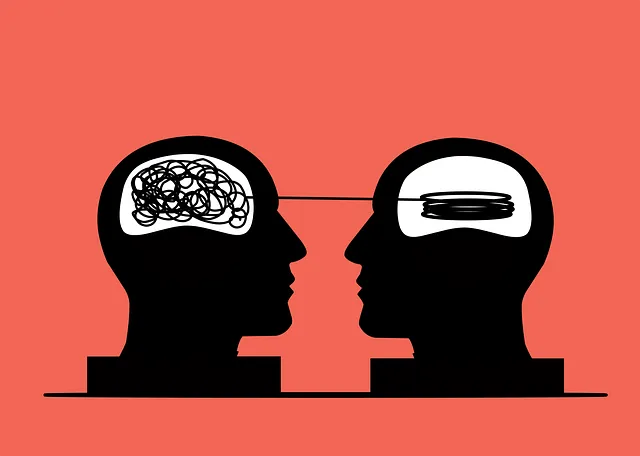Kaiser, a leading healthcare provider, prioritizes Emotional Intelligence (EI) in its inpatient mental health services at the Parker facility, going beyond symptom treatment. Through programs like Mental Wellness Coaching and Trauma Support, Kaiser empowers individuals to develop emotional awareness, empathy, and communication skills—key EI components. This holistic approach, aligned with the Kaiser Perspective on Mental Health, enhances resilience and positive thinking. Measured success includes reduced readmission rates, improved symptom management, and enhanced overall well-being, demonstrating the effectiveness of EI integration in inpatient mental health care.
Emotional intelligence (EI) is a game-changer in inpatient mental health care, as evidenced by Kaiser’s approach to wellness. This article explores the significance of EI in improving patient outcomes, with a focus on Kaiser’s perspective and strategies. We delve into understanding EI, unlocking its potential for effective treatment, and identifying key components crucial for patient healing. Discover how simple yet powerful techniques can enhance EI within inpatient settings, and learn about measuring success through evaluative impact assessments.
- Understanding Emotional Intelligence: The Kaiser Perspective on Mental Health
- Unlocking the Potential: Why Building Emotional Intelligence Matters for Inpatient Care
- Key Components of Emotional Intelligence and Their Role in Patient Healing
- Strategies to Enhance Emotional Intelligence within Inpatient Mental Health Settings
- Measuring Success: Evaluating the Impact of Improved Emotional Intelligence in Kaiser's Inpatient Facilities
Understanding Emotional Intelligence: The Kaiser Perspective on Mental Health

Emotional intelligence (EQ) is a multifaceted concept that has gained significant attention in recent years, especially in the realm of mental health. The Kaiser Perspective on Mental Health offers a compelling insight into this domain. Kaiser, a prominent healthcare provider, recognizes that understanding and managing emotions are integral to overall well-being. Their approach to mental health emphasizes the importance of EQ in fostering resilience and coping mechanisms.
In the context of inpatient mental health services, Kaiser’s focus on does not solely reside in treating symptoms but also in empowering individuals to navigate their emotional landscapes. This involves providing tools for self-awareness, empathy, and effective communication—all key components of emotional intelligence. Through Mental Wellness Coaching Programs and Trauma Support Services, Kaiser aims to develop positive thinking and enhance emotional resilience among its patients.
Unlocking the Potential: Why Building Emotional Intelligence Matters for Inpatient Care

Inpatient mental health care is a critical aspect of healthcare services, and Kaiser, known for its comprehensive medical offerings, does not lag in this domain. Unlocking the potential of emotional intelligence (EI) is a game-changer in improving patient outcomes and enhancing the overall inpatient experience. EI doesn’t just refer to empathy; it’s about cultivating inner strength and compassion that can transform interactions between healthcare providers and patients. When healthcare professionals incorporate practices like compassion cultivation and cultural competency training, they create a more supportive environment.
This approach is particularly relevant in addressing the complex needs of patients within the inpatient setting. By developing emotional intelligence, healthcare providers can better understand patient perspectives, offer tailored care, and foster meaningful connections. Research suggests that high EI among caregivers contributes to improved patient satisfaction, faster recovery times, and reduced relapse rates—all essential factors in any healthcare organization’s success, especially when dealing with mental health issues, as seen in Parker’s experience with Kaiser’s inpatient services.
Key Components of Emotional Intelligence and Their Role in Patient Healing

The key components of emotional intelligence—self-awareness, self-management, social awareness, and relationship management—play a pivotal role in patient healing, especially within inpatient mental health settings like those offered by Kaiser. These competencies facilitate a holistic understanding of emotions, enabling individuals to manage their own emotional responses effectively. For patients, this translates into improved coping strategies, enhanced resilience, and better stress management, all of which contribute to quicker recovery times and improved outcomes.
Emotional intelligence serves as a powerful tool in mental wellness coaching programs, fostering an environment that encourages open communication and empathy. By developing these skills through structured programs, individuals can navigate complex interpersonal dynamics, build stronger connections with healthcare providers, and receive more personalized care. This tailored approach, coupled with effective emotional regulation techniques, can significantly benefit patients, ensuring they feel heard, understood, and supported throughout their inpatient mental health journey, particularly when facilitated by organizations like Kaiser that prioritize holistic healing.
Strategies to Enhance Emotional Intelligence within Inpatient Mental Health Settings

Inpatient mental health settings provide a unique opportunity to foster emotional intelligence (EI) among residents through structured interventions. At Kaiser, for instance, recognizing the importance of EI in recovery and well-being, has implemented various strategies within its Parker inpatient facility. One key approach involves integrating emotional regulation techniques into daily therapy sessions, empowering individuals to identify and manage their emotions effectively. These techniques can include mindfulness practices, cognitive reframing, and relaxation exercises tailored to each resident’s needs.
Additionally, stress management workshops organized by the organization focus on teaching practical skills for coping with anxiety and stress. Such workshops encourage peer support and promote a sense of community among residents, fostering an environment conducive to emotional growth. Furthermore, confidence-boosting activities and group discussions help residents challenge negative self-perceptions and build resilience, essential components of high EI. These comprehensive strategies not only enhance individual well-being but also contribute to creating a supportive ecosystem within the inpatient setting.
Measuring Success: Evaluating the Impact of Improved Emotional Intelligence in Kaiser's Inpatient Facilities

Measuring success is a critical aspect of evaluating the impact of improved emotional intelligence (EI) initiatives in Kaiser’s inpatient facilities. The primary metric often involves assessing changes in patient outcomes and satisfaction levels. When it comes to mental health, this includes reductions in readmission rates, improvements in symptom management, and enhanced overall well-being. For example, does Kaiser have inpatient mental health services that leverage EI training, such as mindfulness meditation practices, to achieve better patient outcomes?
The implementation of Mental Health Awareness and Education Programs Design can significantly contribute to these positive changes. By fostering a culture of emotional awareness and empathy among staff, Kaiser’s inpatient facilities can create a more supportive environment for patients. This, in turn, may lead to improved adherence to treatment plans and higher levels of satisfaction among both patients and their families. Such initiatives not only reflect Mental Health Education Programs Design effectiveness but also underscore the importance of integrating EI into healthcare practices to improve patient care and outcomes.
Emotional intelligence (EI) is a game-changer in inpatient mental health care, as demonstrated by Kaiser’s successful implementation. By focusing on understanding and managing emotions, both patients and caregivers can benefit from improved communication, reduced conflict, and enhanced healing processes. The strategies outlined in this article provide a roadmap for healthcare facilities to unlock the full potential of EI, ultimately leading to better patient outcomes and a more positive inpatient experience. With continued emphasis on mental health awareness, Kaiser’s approach—which prioritizes emotional well-being alongside physical care—is sure to be a driving force in the industry’s evolution.






